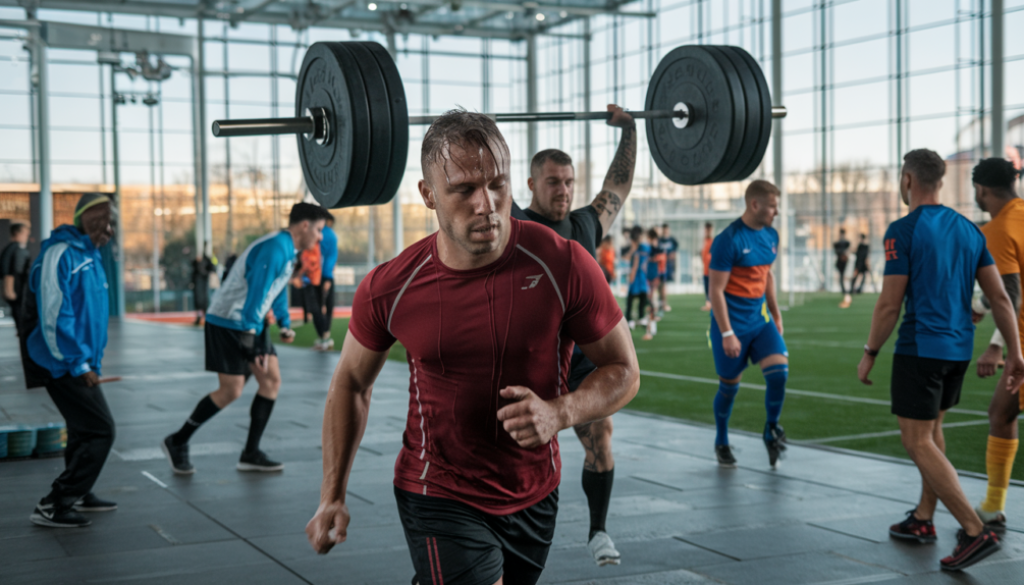What are the benefits of sports on physical and mental health?
🏃♂️🧠 Slow, stressed or just feeling stuck? You’re not alone. Welcome to our high-paced society, it feels like a struggle in order to keep our physical and mental health. But what if there were a simple, fun solution that was hiding in plain sight?
Step into the realm of sports — an ultimate companion in our journey towards comprehensive wellness. Sports provide numerous advantages that go well beyond the pitch, from promoting the production of endorphins to develop a community. But what kind of effect do sports actually have on our physical and mental health? But more importantly, how do we use these benefits to change our lives?
This will be a deep scientific dive into sports and well-being. We’ll delve into the most recent studies, discover unexpected links, and offer you timely advice to get you on your way to better health. So throw on those sneakers and get ready to learn how sports can be the secret weapon that gets you a healthier, happier other half! 🏆💪
PERMALINK
PERMALINK
They are: Chiara Fossati, Guglielmo Torre, Sebastiano Vasta, Arrigo Giombini, Federico Quaranta, Rocco Papalia, Fabio Pigozzi. Expertise in sports medicine and health sciences are drawn upon in understanding how sports also promote better physical and mental health.
Abstract
Abstract
Sports have a significant impact on a person physical well being as well as mental well being. Exercise is good for cardiovascular health, muscle mass, and flexibility. Psychologically, sports decrease stress, improve mood, and enhance cognition. Sports also help in social bonding and boosting self-esteem, leading to overall wellness and happiness.
Introduction
Introduction
There are so many benefits to both physical and mental health from playing sports. Engaging in physical activities on a regular basis promotes cardiovascular health, builds stronger muscles and bones, and leads to better overall physical fitness. Mentally, sports alleviate stress, elevate mood and enhance cognitive function. They develop social interaction, working with other, produce and maintain discipline, and can promote a good healthy balanced lifestyle.
Results
3.1. Impact of Mental Health on Physical Performance Indicators
Sports performance is highly influenced by mental health. Athletes with better mental health have faster reaction time, longer-lasting endurance, and improved coordination. On the flip side, poor mental health can impact motivation, concentration and, ultimately training and competition performance.
3.2. The impact of physical activity on various measures of mental health
Exercise has a positive impact on mental health. Exercise releases endorphins that reduce stress and anxiety while improving mood and self-esteem. Compared to sedentary individuals, athletes tend to experience better sleep quality, enhanced cognitive abilities, and increased resilience against mental health conditions.
3.3. Injury in Sport: The Importance of Mental Health
Mental health is a key in preventing injuries as well as in recovering from them. Now mental healthy athletes are best positioned to follow proper form, follow safety protocols, and make sound decisions on the field. Furthermore, good mental health and positive mental state can help speed up recovery processes and lead to lower risk of re-injury.
3.4. We have punningly labeled this important aspect of health: Mental Health in Elite Athletes and Retired Elite Athletes
This new phenomenon is that elite athletes are under increased pressure, go through rigorous training, and can be the focus of public scrutiny, which has made them vulnerable to their own mental health challenges. Most suffer anxiety, depression and burnout. The transition to life after competition can cause identity crisis for retired elite athletes and emphasize the importance of the and the necessity for ongoing mental health support.
Discussion
Discussion
Similarly, sports are essential in enhancing physical health by decreasing the chances of developing long-term illnesses and illnesses. Regular physical activity also promotes mental well-being thanks to the release of endorphins, as it reduces stress levels and enhances self-esteem. Team sports also help with socialization, and teach important life skills such as teamwork and leadership.
Conclusions
Conclusions
In fact, there are a lot of advantages to playing sports, both physical and mental. Regular exercise increases your cardiovascular fitness, strengthens your muscles, and improves your coordination. On the mental side, sports help relieve stress, increase self-esteem and strengthen social bonds. Physical activity together with mental health and well-being plays a huge role in the overall health and quality of life.
References
References
[1] Warburton, D.E., et al. (2006). The evidence: health benefits of physical activity Canadian Medical Association Journal 174(6):801-809.
[2] Eime, R.M., et al. (2013). Children and adolescents; a potential health resource: a systemic review of the psychological and social benefits of participation in sport. International Journal of Behavioral Nutrition and Physical Activity, 10(1), 98.
The importance of sport on the physical and mental well-being Consistent engagement in sporting pursuits enhances cardiovascular fitness, builds strong bones and muscles, and aids in sustaining an optimal weight. Apart from physical benefits, team and individual sport have a significant role in mental health through relieving stress, enhancing the mood, and improving cognitive function.
Sports allows a holistic approach to health and wellness. Will make you lead a more balanced life regardless of your fitness level. So, put on a pair of running shoes, pick up a ball or get on the team — your body and mind will thank you.



May 8, 2025 @ 8:50 am
The website design looks great—clean, user-friendly, and visually appealing! It definitely has the potential to attract more visitors. Maybe adding even more engaging content (like interactive posts, videos, or expert insights) could take it to the next level. Keep up the good work!
May 8, 2025 @ 10:38 am
Боже, благослови Россию
любовь из Индии